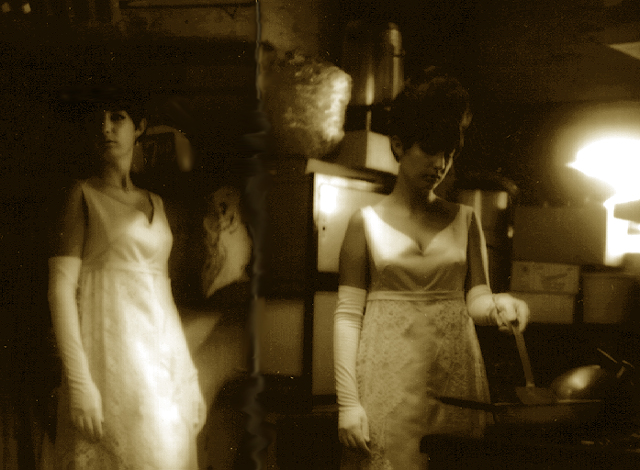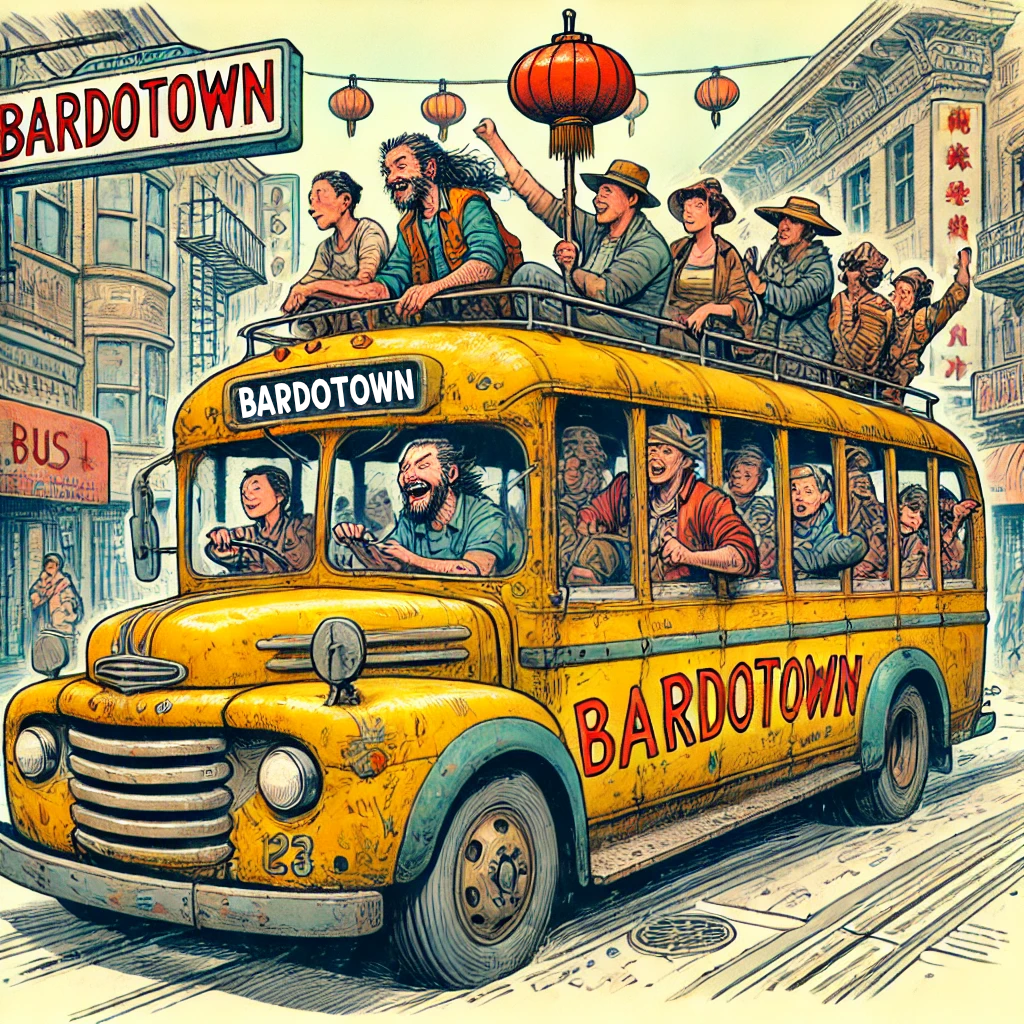
Divine Play: The Solution to Life, the Universe, and Everything
Imagine a life where every day feels lighter, more joyful, and infinitely creative. A life where problems are not burdens to carry but opportunities to explore. This isn’t just wishful thinking—it’s the essence of Divine Play, a daily practice that taps into the infinite potential of the God State.
What Is Divine Play?
At its core, Divine Play is about stepping into the role of a playful creator. It’s the understanding that life isn’t something to be survived or endured but something to be explored with curiosity, joy, and a sense of wonder. It’s the state of being embodied by Krishna, whose playful, creative energy inspires us to see life as a canvas for our divine expression.
Creating Like a God
In many traditions, the act of creation is divine play. Think of Krishna, the ultimate playful creator. He didn’t create the world out of duty or necessity—he created it out of joy, love, and curiosity. When you make a song, or write a poem, or paint a picture, or practice the Sacred Movements, or cook an omelette, you’re stepping into that same role, playing as a God would play.
There are no rules. There’s no pressure. There’s just the delight of bringing something into existence that wasn’t there before. Out of myself the world was made.
How Does Divine Play Work?
- Creating Without Judgment: Whether you’re composing a song, writing a poem, painting a picture, taking a photograph, carving a statue, or simply enjoying the beauty of the world and translating that into feel-able reality, Divine Play invites you to create freely, without fear of judgment or failure. In this practice, everything you make is perfect because it’s uniquely yours.
- Living With Curiosity: Approach every moment as an opportunity for discovery. What if this conversation, this walk, or this challenge is a part of your divine game? What can you uncover about yourself and the world today?
- Embracing Joyful Action: Like a child playing with blocks or an artist painting a masterpiece, Divine Play reminds you to delight in the process — don’t get hung up in the outcome or result. It’s the play that counts, not the product.
- Tapping Into the God State: Through our various practices, such as meditation, visualization, or dream state exploration — any of our practices — you will have the opportunity to align yourself with the infinite potential of the universe. This is where true creativity and problem-solving emerge.
Why Practice Divine Play Daily?
- Reduce Stress: When life feels like play, even the hardest challenges become lighter.
- Boost Creativity: Whether you’re an artist, entrepreneur, or problem-solver, Divine Play unlocks new ideas and perspectives.
- Deepen Connection: Playing like a God opens your heart to others, fostering empathy, understanding, and joy.
- Enhance Well-Being: Joy and curiosity are powerful antidotes to the mundane and the overwhelming.
Why the Hesitation?
For many, the thought of creating can feel intimidating. “What if it’s not good enough?” or “I’m not creative” are common doubts. But here’s the truth: in the God State, there is no “good enough.” Every creation—every note, every word—is perfect in its own way because it’s born from your unique essence in the spirit of Divine Play!
Overcoming the Fear
- Remember Who You Are: When you create, you’re not just “you”—you’re tapping into the infinite creative energy of the universe.
- Start Small, Dream Big: Like Krishna playing his flute, even a simple melody or a short verse can resonate deeply.
- Play, Don’t Judge: Approach your creation with the joy of a child discovering something new. The process is the reward.
- Think of the Sharing: In our Zoom sessions, the energy of sharing a piece of yourself—whether a song, a poem, or even just a phrase—lifts everyone up, including you.
How to Begin
Starting Divine Play is as simple as asking yourself, “How would a God approach this moment?” Then you simply do these three things:
- Set Aside a Definite Period of Play Time: Each day, dedicate 15 minutes to pure, joyful creation. Write, draw, sing, or simply daydream.
- Mentally Reframe Problems as Games: Instead of feeling burdened by challenges, view them as puzzles to solve with curiosity and creativity.
- Be Sure to Share Your Creations in Zoom Meetings: Enjoy your community of fellow divine players who celebrate each other’s songs, poems, paintings, culinary arts, and many other incredible and exciting ideas.
What Does Divine Play Feel Like?
Imagine the joy of hearing a melody you’ve created or the beauty of reading a poem you didn’t know was inside you. That’s the God State in action. You’re not just making something—you’re opening yourself to the boundless potential within and making self-discoveries by the dozens.
Take Sam, who exploited — in a nice way — his love of blues, and created a foot-tapping jam in under an hour. “It felt like I was painting with sound,” he said. Or Anna, who shared her childhood memory and brought the group into a state of awe.
As Anna said after sharing her first poem: “It’s like opening a window I didn’t even know was stuck shut.”
Divine Play Is for Everyone
Whether you’re a seasoned creator or someone who’s never written a poem or hummed a tune, Divine Play meets you where you are. It’s about rediscovering the joy of being alive, moment by moment, and expressing the infinite possibilities within you.
Join the Movement
The practice of Divine Play is growing, with people around the world discovering its transformative power. Start today and see how this joyful, creative approach can change your life—and maybe even the universe.
Are you ready to play like a God plays?
Step-by-Step Guide to Writing Lyrics
Creating lyrics can feel daunting, but by breaking it down into micro-steps, anyone can tap into their creative potential and write something meaningful. Here’s a detailed guide to walk you through the process. Keep in mind that I designed this layout for myself and for the lyrics I intend to write.
You are certainly welcome to change any of these items in any way you like — they are here just to provide a general guide that will produce a lyric sheet that will work in the Suno system.
Step 1: Set the Mood
- Ask: What feeling or emotion do you want your song to convey? Joy, sadness, nostalgia, hope, despair, boredom, amusement, silliness, drama or whatever… or none. Try that and see what happens.
- Exercise: Close your eyes and picture a moment, memory, or image that embodies the emotion upon which you settled. If you haven’t yet settled on an emotion, do so now — I’ll wait.
- Take Notes: Write down a few words or phrases that come to mind.
Step 2: Choose a Theme or Story
- Ask: What is your song about? A personal experience, a message, or just a mood?
- Exercise: Write down a single sentence that sums up your song idea (e.g., “This is a song about finding light in darkness”).
Step 3: Start with a Hook
- Definition: A hook is the catchy phrase or line that captures the essence of the song and sticks in the head, if you really did land on one — hooks are not easy to come by.
- Exercise: Try completing this sentence: “The main idea of my song is…” Turn that idea into a short, memorable phrase.
- Example: If your theme is love, your hook could be, “Love is the only way.”
Step 4: Build a Word Bank
- Ask: What words or images come to mind when you think about your theme?
- Exercise: Jot down 10-20 words related to your theme. For a song about hope, your list might include: sunrise, horizon, tomorrow, climb, dream, light, stars, believe, wings.
- Make a Short Rhyming Dictionary: Find words that rhyme for these lyrics — moon, June, baboon, spitoon, racoon, pontoon, croon, spoon, tune. Make sure they go at the end of a sentence, not the middle or front.
Step 5: Develop the Verses
- Goal: Verses tell the story or provide details about your theme.
- Exercise: Using your word bank, write one sentence or phrase for each verse. Focus on answering these questions:
- What happened?
- Who is involved?
- Where is this happening?
- Example:
- Verse 1: “I woke to a sky painted gold, my dreams whispering in my ear.”
- Verse 2: “Each step I take now feels lighter, the stars are pulling me near.”
Step 6: Create the Chorus
- Definition: The chorus is the heart of the song and repeats for emphasis.
- Exercise: Combine your hook with vivid imagery or a strong emotional statement. Repeat it for impact.
- Example: “Love is the only way, through the storm, we’ll find the day. Love is the only way.”
Step 7: Add a Bridge
- Definition: A bridge adds contrast or a new perspective before returning to the chorus.
- Exercise: Think of a twist or shift in your story or emotion. Write 1-2 lines that surprise or deepen the message.
- Example: “When the night feels endless, remember the dawn will rise.”
Step 8: Refine Your Lyrics
- Ask: Does every word serve the song? Are there any unnecessary phrases?
- Exercise: Read your lyrics aloud. Adjust any lines that feel awkward or don’t flow naturally, or don’t exactly fit the meter — the number of syllables should match in each line.
Step 9: Pair with Melody
- Exercise: Experiment with simple tunes or rhythms. Sing your lyrics to find the melody that feels most natural, and fits the musical beat.
- Tip: Don’t overthink the music—start with humming, or a basic chord progression on a guitar, piano or ukelele.
Step 10: Share and Revise
- Exercise: Share your lyrics with a trusted friend or group (like your Zoom circle). Gather feedback and refine as needed.
- Tip: Sometimes a fresh pair of ears can spark new ideas.
Bonus Tips:
- Keep a notebook or app handy to jot down random lyric ideas.
- Don’t force it. Some of the best lyrics come when you’re relaxed and not overthinking, or even thinking about writing a song.
- Remember: There are no “rules” in songwriting—your voice and perspective are what make your lyrics unique. Don’t compare your song to anyone else’s.
With these micro-steps, writing lyrics becomes an accessible and enjoyable process. Start small, trust your instincts, and most importantly—have fun with it!
Boarding now! Let’s Go!!!
It’s time to climb aboard the Bardo bus for our daily video tour!!!
=======================================================================

See You At The Top!!!
gorby

